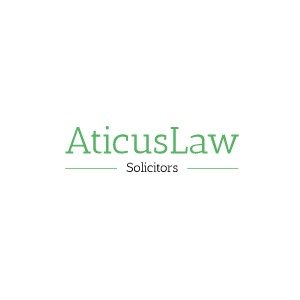Best Domestic Violence Lawyers in Wilmslow
Share your needs with us, get contacted by law firms.
Free. Takes 2 min.
Free Guide to Hiring a Family Lawyer
List of the best lawyers in Wilmslow, United Kingdom
About Domestic Violence Law in Wilmslow, United Kingdom
Domestic violence, often referred to as domestic abuse in the UK, is widely recognized as a prevalent issue in Wilmslow and the broader United Kingdom. The law protects victims and penalizes perpetrators irrespective of their gender. Domestic violence in Wilmslow covers a broad spectrum of abusive actions, including physical, emotional, sexual, and financial abuse perpetrated by current or former intimate partners, household members, or family members. The protections against these forms of abuse are established under various pieces of legislation like The Domestic Abuse Act 2021.
Why You May Need a Lawyer
While each instance of domestic violence is unique and carries its own challenges, common situations that warrant legal assistance include obtaining a restraining order or non-molestation order, negotiating safe custody arrangements if children are involved, and navigating criminal charges against the perpetrator. An experienced lawyer can also guide a victim through critical interpersonal issues like divorce proceedings or property disputes and can provide support and advocacy during criminal or civil court proceedings.
Local Laws Overview
The key aspects of local laws concerning domestic violence in Wilmslow fall within the purview of national UK legislation. The main law being the Domestic Abuse Act 2021, which broadens the definition of domestic abuse, prohibits cross-examination of victims by their abusers in family courts, and establishes the office of Domestic Abuse Commissioner. Moreover, the Family Law Act 1996 includes provisions for acquiring Non-molestation and Occupation Orders for those experiencing domestic abuse.
Frequently Asked Questions
What constitutes domestic violence in Wilmslow?
Domestic violence in Wilmslow covers physical, sexual, emotional, and financial abuse within close relationships. This can involve manipulative behavior, intimidation, harassment, and other actions meant to control or harm a person.
Can men also be victims of domestic abuse?
Yes, domestic abuse can occur to anyone, regardless of gender. Men are also protected under the legislation and can seek help and legal protection if they are victims.
What is the role of the police in cases of domestic abuse?
The police play a major role, from receiving initial complaints and investigating allegations to potentially arresting and charging perpetrators. Victims are encouraged to call the police if they are in immediate danger.
What is a Non-molestation Order?
A Non-molestation Order is a type of injunction under the Family Law Act 1996, which can provide legal protection for victims of domestic abuse by preventing the perpetrator from using or threatening violence against the victim or harassing, pestering or intimidating them.
What can I do if the perpetrator violates a restraining order or a non-molestation order?
If a person breaches a restraining order or a non-molestation order, they are committing a criminal offence. In such cases, you should contact the police immediately.
Additional Resources
For victims seeking immediate help, local police are the first line of contact. In addition, the National Domestic Violence Helpline provides 24/7 support, and local organisations like the Cheshire East Domestic Abuse Hub and Women's Aid can provide resources and assistance. Legal aid may also be available for those who cannot afford legal representation.
Next Steps
If you are a victim of domestic violence in Wilmslow and require legal assistance, the first step is to reach out to authorities or a local advocacy organization for immediate safety. From there, consulting with a qualified domestic violence lawyer can help you understand your options and rights under the law. It’s crucial to remember that no one deserves to be abused, and help is available for you.
Lawzana helps you find the best lawyers and law firms in Wilmslow through a curated and pre-screened list of qualified legal professionals. Our platform offers rankings and detailed profiles of attorneys and law firms, allowing you to compare based on practice areas, including Domestic Violence, experience, and client feedback.
Each profile includes a description of the firm's areas of practice, client reviews, team members and partners, year of establishment, spoken languages, office locations, contact information, social media presence, and any published articles or resources. Most firms on our platform speak English and are experienced in both local and international legal matters.
Get a quote from top-rated law firms in Wilmslow, United Kingdom — quickly, securely, and without unnecessary hassle.
Disclaimer:
The information provided on this page is for general informational purposes only and does not constitute legal advice. While we strive to ensure the accuracy and relevance of the content, legal information may change over time, and interpretations of the law can vary. You should always consult with a qualified legal professional for advice specific to your situation.
We disclaim all liability for actions taken or not taken based on the content of this page. If you believe any information is incorrect or outdated, please contact us, and we will review and update it where appropriate.








